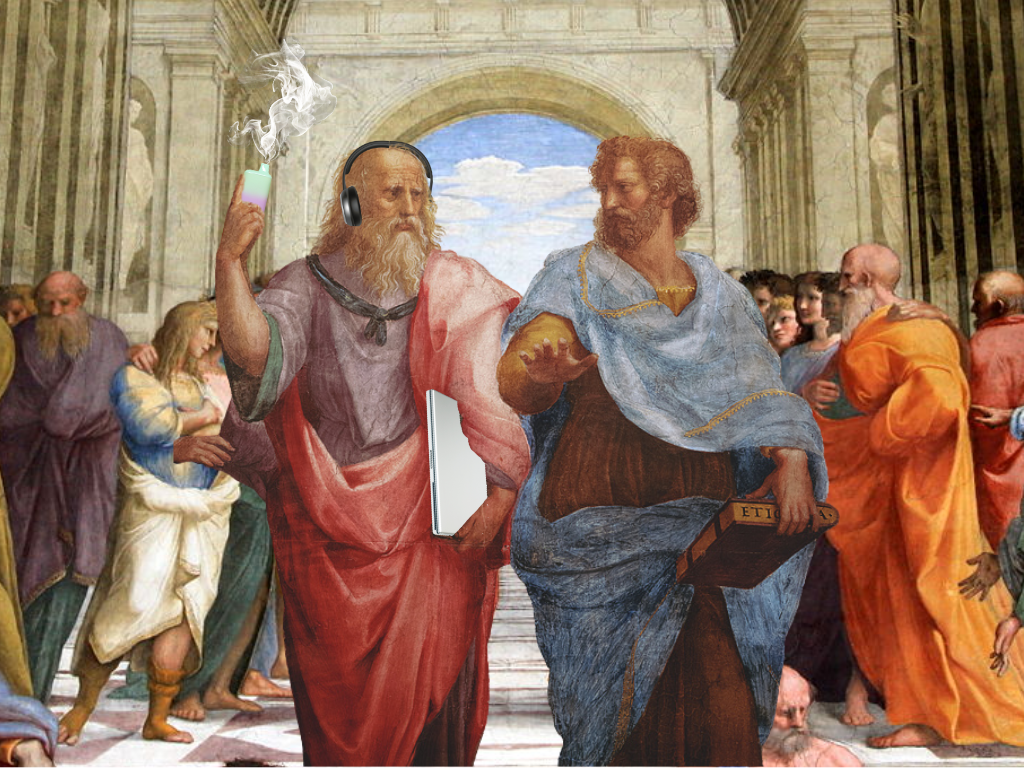I’ll begin this screed as most screeds begin — quoting a dead guy:
“If men learn this, it will implant forgetfulness in their souls. They will cease to exercise memory because they rely on that which is written, calling things to remembrance no longer from within themselves, but by means of external marks.”
That dead guy is Aristotle, and the subject of his suspicion, this technology that will turn humanity dull and dim-witted, was the written word.
In ancient Greece, poetry and prose were passed down in oral tradition, but somebody had the bright idea to ink stories for posterity. And Aristotle was earnestly concerned that memory would diminish at the hands of “external marks.”
But lucky us that his screed was written. The quote offers a speculative frame on the growing chorus of media pundits and academics that see the death of behaviors and commodities everywhere as an intergenerational demilitarized zone.
Apparently, we walk among the dead or dying detritus of movie theaters, socializing, critical thinking, diamond rings, democracy, third places and — because it’s the original — chivalry.
In an age of rapid technological change in which behaviors shift dramatically, editors and outlets spew a search engine-optimized cold shower of doom to catch the ire of the (dying) few who still read. According to these stories, we live amid a mass extinction wrought by technology and millennials.
The generation born between 1980 and 1998 killed “breastaurants” and starter homes.
Gen Z bludgeoned socializing with a shovel called social media.
Generation Alpha has already smothered the human capacity for speech, math, literacy and, more generally, operating within the implicit behavioral norms of a civilized society.
I think this is a bunch of baloney. Critical thinking is apparently also dead because these narratives fall into the slippery slope narrative, a logical fallacy. But the march of technological progress isn’t a slippery slope, nor does one innovation render its predecessor moot.
In America, at least, we tend to think of technology as a cheetah and we are struggling to hang on like a Sunday morning cartoon jockey. In this relationship, technology is not a tool but a force with agency and discretion. It is inevitable that we adapt to its pace despite our traditions and feelings. Investors and inventors have marketed a self-fulfilling cycle of technological preeminence that hems our society, politics, and frankly, the ability to think creatively about alternative ways of being.
The techno-capitalists in Silicon Valley are very good at framing their products in both utopian and human terms. To name a few, we’ve been sold the iPhone, wearable tech, biotech and AI as an inevitable evolution, as if they are keys to unlocking more perfect humans and human relationships. This marketing strategy rhymes nicely with our desire to desire. Analog is antiquated. Movie theaters are dodos. Sorry! There’s something better. So it goes.
But we must remember these are human inventions, and that we control technology at every turn. We mine raw materials. We design and shape the final form. Then, we determine purpose and use. We ascribe and do not ascribe meaning. We buy or do not buy.
Because cinephiles would like to have a word. The vinyl record player has something to say. The thousands of reviews of various fountain pens on Amazon are coming to get cursive from hospice. Has The Atlantic heard about young people joining book clubs?
And wait, wasn’t it the Bush administration’s No Child Left Behind Policy that eschewed close reading for multiple choice questions on anodyne reading passages? Teaching for the test killed the game, the joy of learning. Not iPads. And there’s no such thing as an iPad kid — just an iPad parent and the freaky weirdos who make them.
We need to think of technology beyond the service it provides. A highway overpass and the Brooklyn Bridge are fundamentally the same. The highway may even be more efficient. But has your gaze ever lingered on an asphalt highway, the way its spires and iron frame the warm red glow of a waning summer just so? Has it made you long for the thousands before you who saw it just as you see it now? I didn’t think so.


